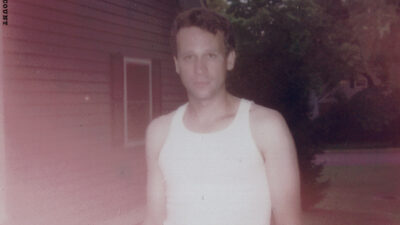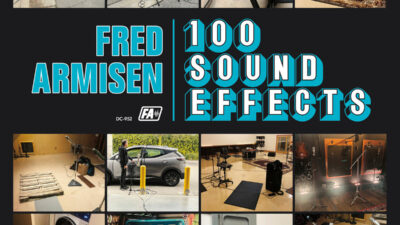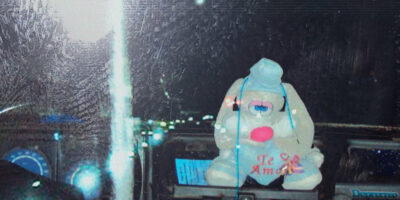Genre: Emo
Favorite Tracks: “Sam Porter Bridges,” “Portions For Rats,” “Too Close For Comfort”
“Maybe one day instead of the red line / I’ll take the surfliner from union station / Head to the coast to see / Blinding sun on ocean waves,” Sydney Landis sings over the plucked acoustic chord progression of “Surfliner.” Wanting something that is always just out of reach, though not outside of possibility. may be a complicated feeling in its blend of resignation and hope. But it is a recurring idea on NOW I CAN DIE HAPPY, the debut album from LA twee pop band Someday, Maybe. The record finds vocalist Sydney Landis and bassist Zenny teaming up with William Gibbons of Kara’s Walk Home on drums. The mission? Put each member in a musical position they are unfamiliar with to learn new skills together. The result? One of the sweetest indie rock albums of the year.
Kara’s Walk Home is a particularly ambitious act in the emo landscape, boasting two meticulously arranged albums, each an hour in length. Regardless of the expectations fans may have, Someday, Maybe offers something different—something more direct. In a sense, Landis’ and Gibbons’ vocals are negatives of each other; Gibbons takes inspiration from the full-throated screams of J-Rock, while Landis settles into a floating and wistful recitation. But there is a connecting thread: both sing in the dry timbre that only their completely unique voices allow them to. Gibbons often writes from a variety of characters’ perspectives while Landis writes autobiographically. Both approaches yield batches of stories featuring speakers who are looking for something, even if it’s just the energy to give it their best tomorrow.
Starting with the twee pop sounds of a Rilo Kiley, NOW I CAN DIE HAPPY becomes defined by loose performances and hands-off production style. Lyrics lean heavily on cutting sentimentality, and the band draws a throughline to the likes of Rainer Maria and Everyone Asked About You. The act revives the lost art of twee emo (tweemo?!) in a new age for both genres.
Despite these comparisons, the band’s practice of placing each member in a novice role lends them a distinct charm. “Uprooted” for example is an engaged ripper—the most straightforward rock song on the album. The pullquote comes through in the bridge, on the four-times-repeated: “I can’t breathe when I’m alone / I can’t tell you on the phone / I’m only afraid when the plane takes off / I’ll only blink if you blink first.” A seasoned songwriter might make the second couplet rhyme to maximize catchiness—but what do the seasoned songwriters know really? If a lyricist knows exactly what they want to say, why settle for a different arrangement of those words for the sake of a hook? Instead, this uneven rhyme scheme adds a tense intrigue to the words. Despite being relatively new to songwriting, Landis is a lyricist that knows what she wants to say. Likewise, the loose and carefree hammer-on guitar lead of the swaying “Sam Porter Bridges” gives the song a living, breathing quality. Matching this movement, the track references the everyday hero of Hideo Kojima’s DEATH STRANDING, and draws a metaphor between traversal of complicated relationships to the precarious traversal of a frozen pond.
Every song here has a small surprise tucked away. “Paris” is lyrically bleak, but is given levity through a bright melodica performance. “Trouble” is slow to start but soon reaches a fever pitch of swift strumming and throttling cymbals. “Portions For Rats,” honoring its Rilo Kiley namesake, is surprising in how it produces a verse melody as instantly catchy as its chorus melody while being sung through Landis’ timid vocal delivery.
“Full Swing” is the band’s take on a cathartic new year anthem, blaring harmonica against propulsive guitars and drums. Its climax is especially gratifying, as Landis and Gibbons trade off vocals. Some of the record’s most exciting tracks find the pair dueting, such as on the two closers, “Sunlight Spear,” a piano-led tune which gives way to rushing chords thick with distortion and a soaring trumpet line, and “Too Close For Comfort,” the longest and most dynamic song on the album, complete with flute, trumpet, and a waltzing rhythm section. The band clearly took great care in closing out the album, as a bassline and a few closing remarks from Landis erupt into a chaotic wave of crashing instrumentation. Gibbons even lets loose a couple of those screams that gave the Kara’s Walk Home material so much character. All three band members give performances here that show how much the recording of this album meant to them.
As much as NOW I CAN DIE HAPPY is a stellar debut, the album feels just as much like a successful experiment. On Weezer’s late-period single “Back To The Shack,” Rivers Cuomo sarcastically sings: “Maybe I should play the lead guitar and Pat should play the drums,” as a pseudo-self-aware jab at how the act’s authenticity had been slowly compromised over their career. To this, Someday, Maybe confidently responds, “No, Rivers, maybe Pat should play the lead guitar and you should play the drums.”
















Comments